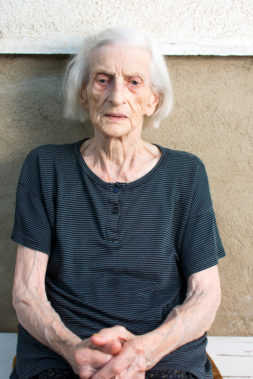It seems we spend most of our adult life battling the bulge wishing for an easy way to lose weight. But, for some older adults, unintentional weight loss causes medical problems. According to the American Family Physician , 16-28 percent of people experiencing unintended weight loss present with no easily identifiable cause.
Elderly people lose weight for many reasons. Natural changes in the body cause reductions in bone and muscle mass. But, rapid weight loss often has a more dynamic underlying cause. Understanding how certain illnesses affect weight, eating, and nutrition will help you create a diet plan to help your loved one.
Cancer
According to the National Cancer Institute, advancing age is a very important risk factor for getting cancer. More than 40% of people reported unintended weight loss when diagnosed with cancer according to the American Society of Clinical Oncology. While cancer is by no means the only cause of unexplained weight loss there is a strong correlation between why elderly people lose weight and cancer. Cancer takes a bite out of physic for many reasons. Cancer cells may affect metabolism and impact the immune system.
Changes to the immune system or metabolism may affect the way food is processed and supplied to the body. People with cancer sometimes report nausea, vomiting, and loss of taste. This makes eating undesirable to some cancer patients which may contribute to unintended weight loss. Depending on the systems affected by cancer, constipation, nutrient absorption, swallowing, and mechanical breakdown of food may become compromised.
If your loved one receives a diagnosis of cancer there are things you can do to help with unintended weight loss:.
Increase the amount of food your loved one gets.
Avoid heavy foods especially before treatments.
Record the foods your loved one eats and record how she feels after eating. Foods that increase nausea should be avoided.
Work with a dietician or nutritionist to create a diet plan that prevents unintended weight loss and nausea.
Dementia
Dementia is the umbrella term for a constellation of illness that present with cognitive impairment including Alzheimer’s Disease. Changes in diet and weight are hallmark indications that mental processing may be affecting eating habits. Often, people who are experiencing mild cognitive impairment undergo subtle changes in diet. If you ask a loved one with mild cognitive impairment if she is hungry, she may say no. But, if you place a plate of yummy food infront of her she will dig right in. Sometimes people with dementia lose sensitivity to sensations of hunger and fatigue and must be cued to eat.
You can help your loved one stop unintended weight loss by giving food at appropriate meal times. Do not offer food. Your loved one may not recognize the need to eat. Take into consideration your loved one’s tastes and prepare to cater to them. People who experience cognitive change may also experience personality changes. Foods that were once adored might now be abhorred.
Change food presentation. Changes in food perception affect what your loved one perceives as appetizing. Big plates of food might look abundant but can cause anxiety in someone with dementia. Some studies have shown that color plates improve overall food intake over plain white plates – you can’t eat what you can’t see.
Model eating behaviors. Dementia often interferes with a person’s ability to complete simple processes. Busy tables make distinguishing food more difficult. And, the use of a fork might become more complicated than your loved one can manage. Consider offering finger foods. To learn more about dementia specific weight loss click here!
Medications
When elderly people lose weight it is important to check with their doctor to ensure medications are not contributing to unintended weight loss. Medications have a myriad of side effects. Some medications act as appetite suppressants or affect the body’s ability to process nutrients. Interactions between medications can also affect a person’s weight. Medication side effects may also include swelling and fatigue. While these symptoms do not directly affect nutritional processes they may adversely affect a person’s ability to prepare and shop for food.
Depression Loneliness and Pain
Depression may affect your loved one’s desire to engage in activity. People who experience depression often report a decrease in appetite. Elderly people lose weight unintentionally when they feel isolated. Your loved one may experience the loss of loved ones and independence. These emotional changes sometimes contribute to declines in food interest.
Pain impacts a person’s desire to engage in meals. If your loved one experiences pain, speak to her doctor about getting it under control. She may feel more interest in food if she doesn’t ache.
If you think your loved one’s weight loss stems from depression, loneliness, or pain, consider sharing mealtimes together daily. You can also hire a caregiver to prepare meals and offer companionship.
Wrap Up
Elderly People lose weight for a variety of reasons. You will need to be patient when encouraging more food intake. Underlying health, emotional, and cognitive issues make food consumption a lower priority or less efficient. Work with your loved one to find and create appetizing foods.


